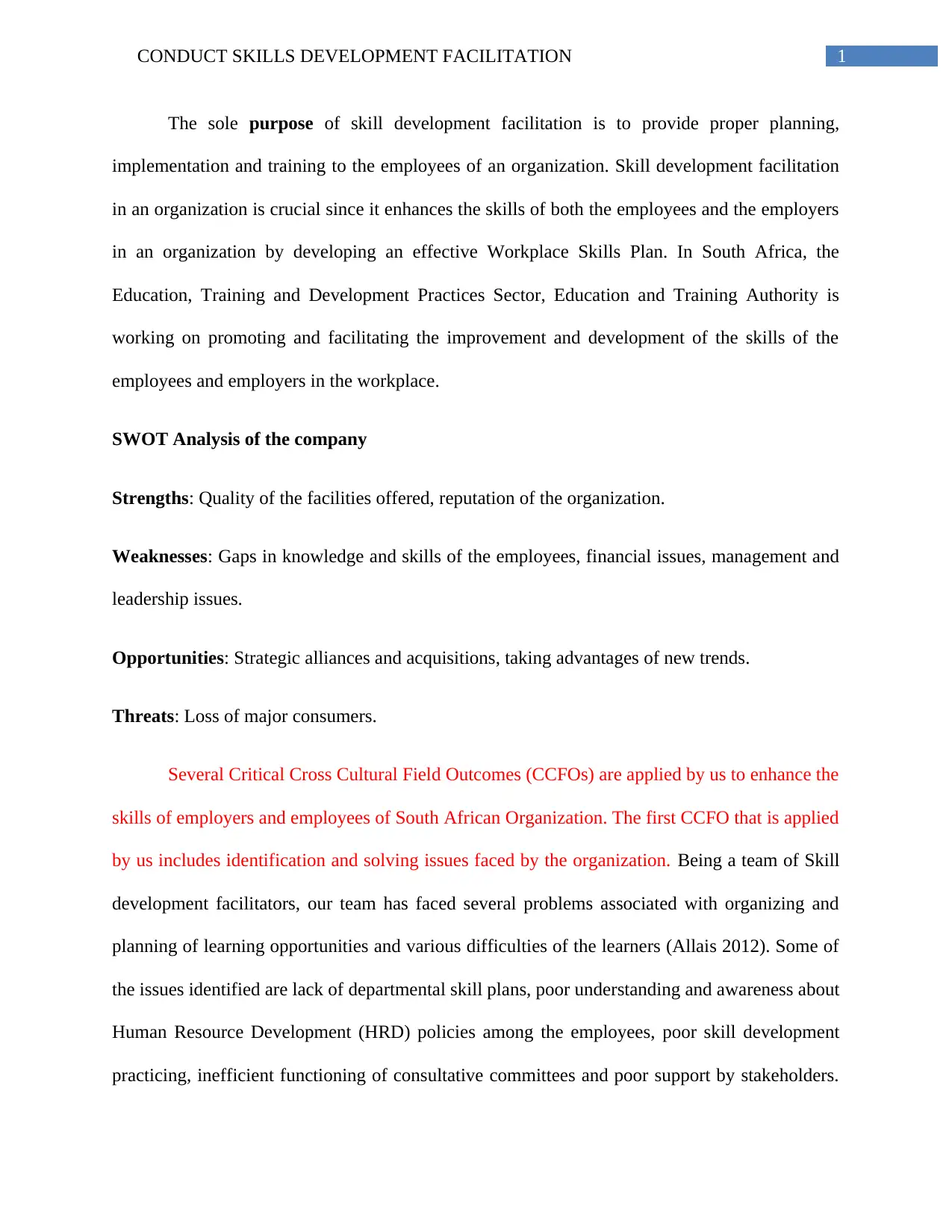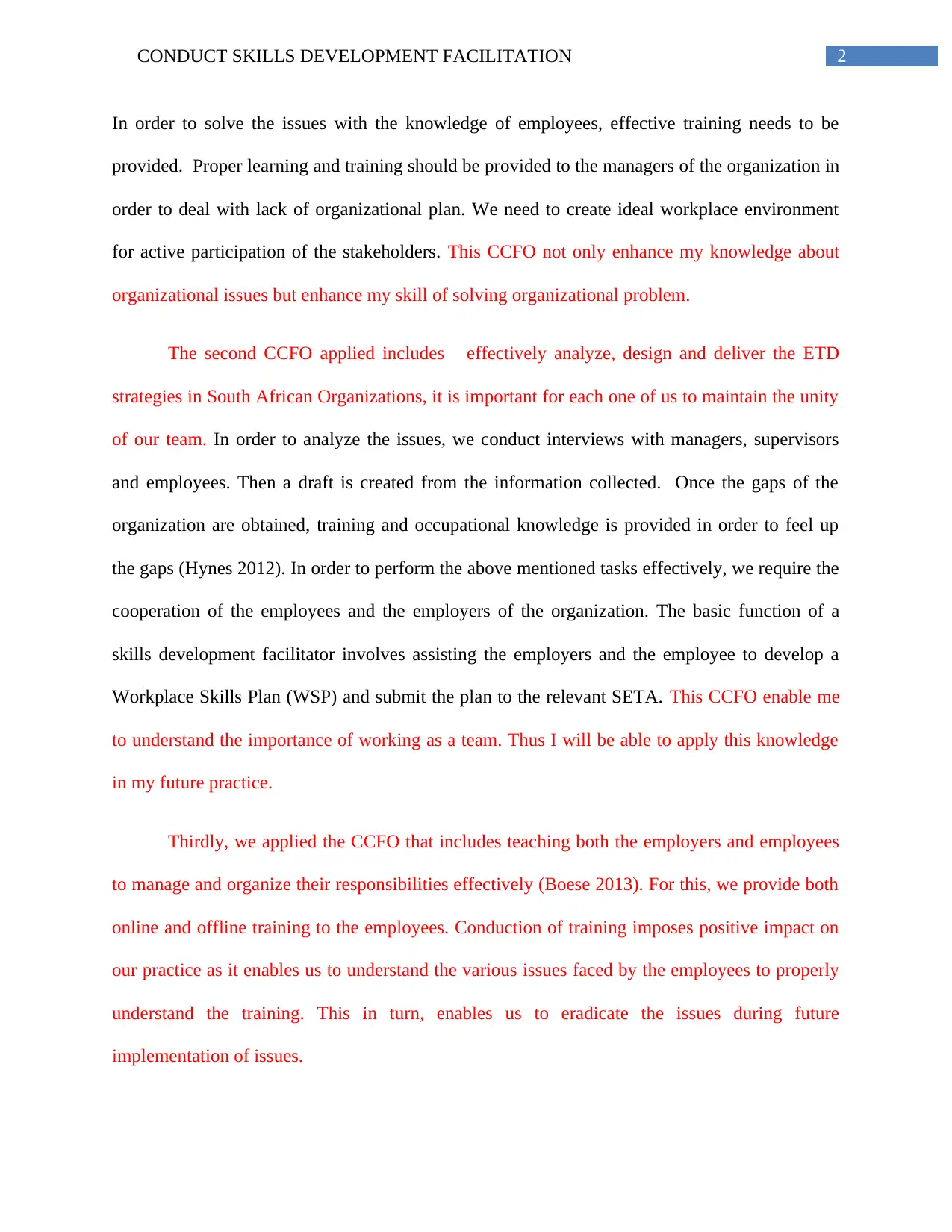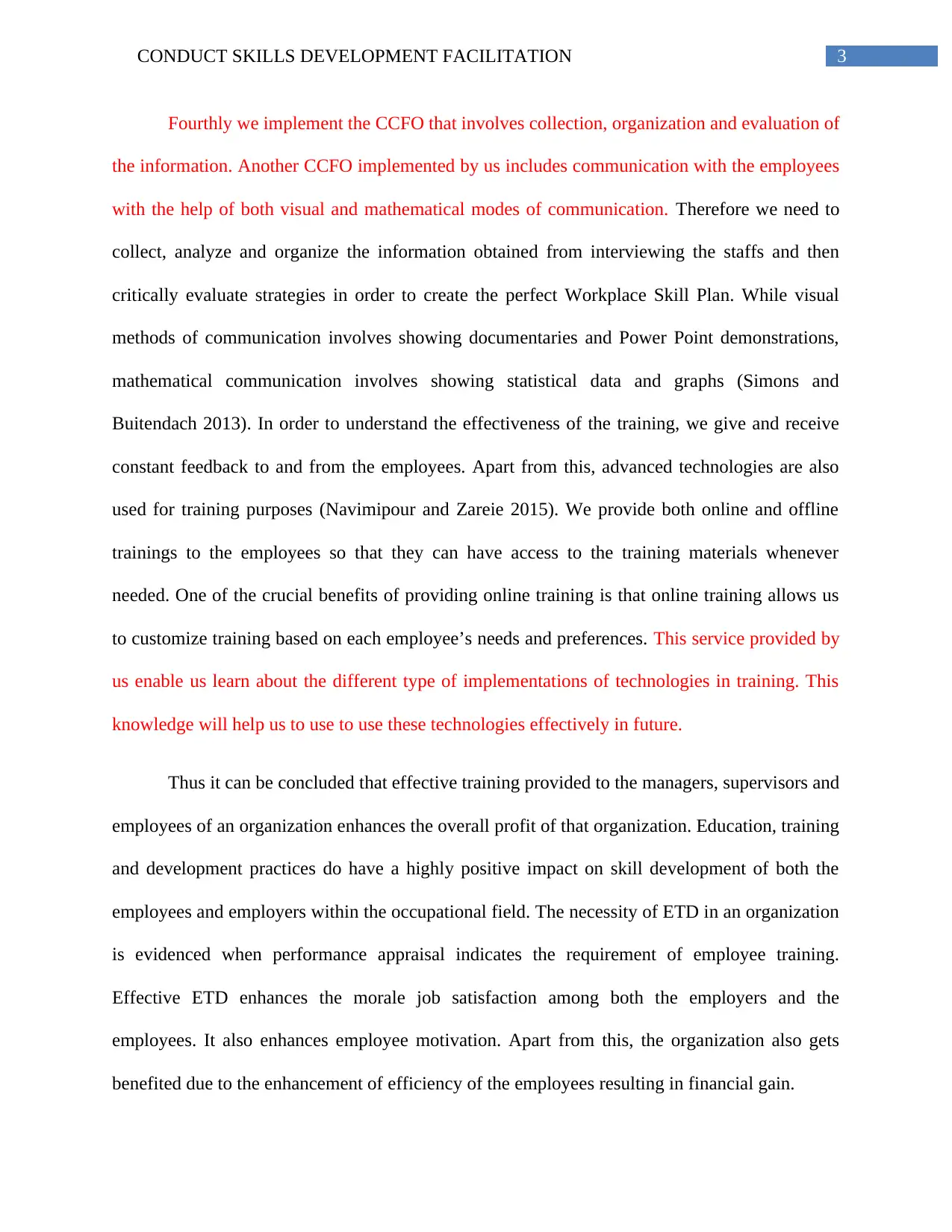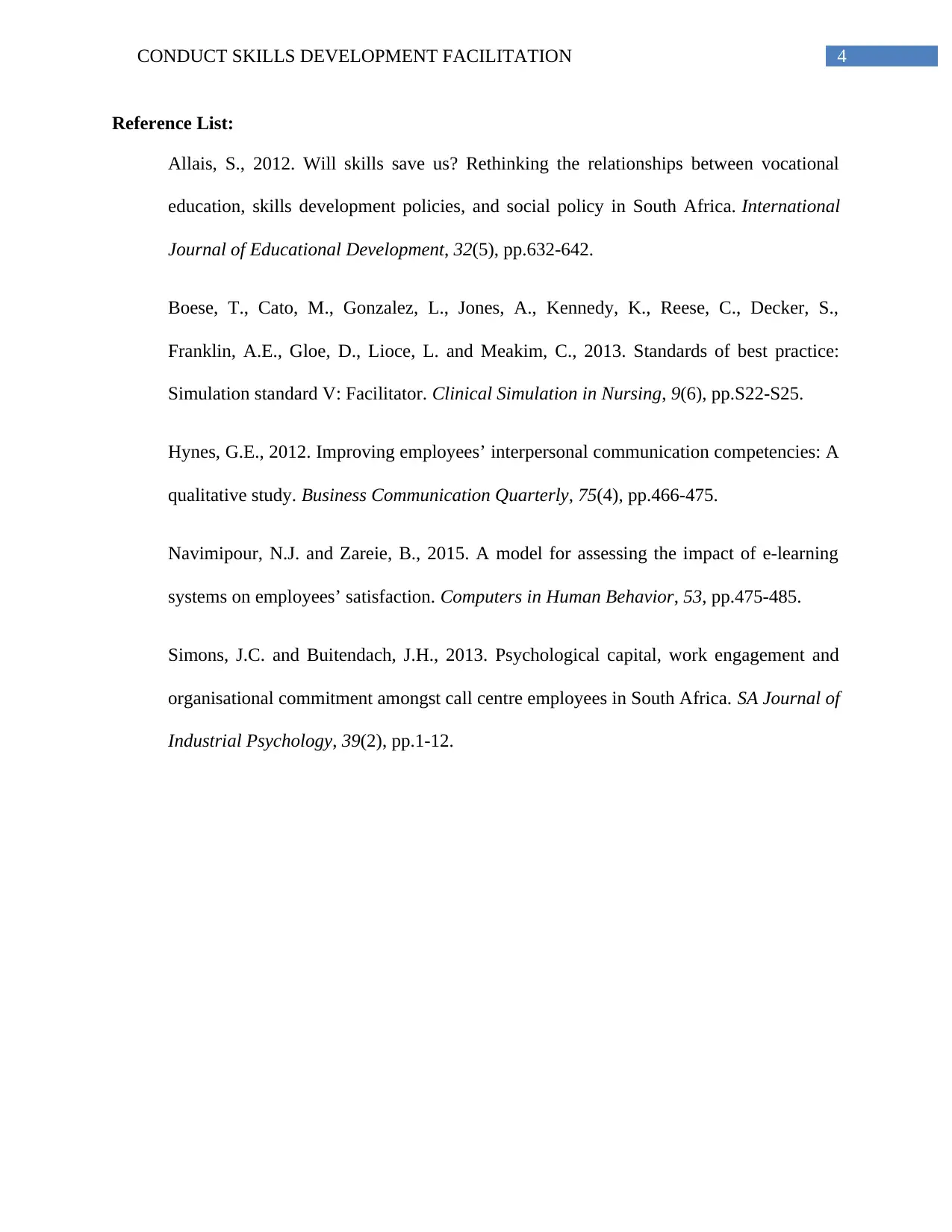Skills Development Facilitation in South Africa
VerifiedAdded on 2020/05/16
|5
|1183
|69
AI Summary
This assignment delves into the critical role of skills development facilitation within South African organizations. It examines a SWOT analysis of a hypothetical company, highlighting its strengths, weaknesses, opportunities, and threats. The assignment further explores several Critical Cross Cultural Field Outcomes (CCFOs) applied by skill development facilitators, including identifying and solving organizational issues, analyzing and designing ETD strategies, managing responsibilities effectively, and collecting, organizing, and evaluating information. It emphasizes the positive impact of effective training on employee performance, job satisfaction, motivation, and overall organizational profitability.
Contribute Materials
Your contribution can guide someone’s learning journey. Share your
documents today.
1 out of 5










![[object Object]](/_next/static/media/star-bottom.7253800d.svg)